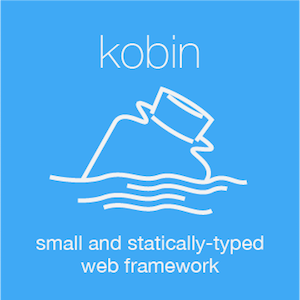"""
Response
========
In contrast to :class:`Request` objects, which are created automatically,
:class:`Response` objects are your responsibility.
Each view functions you write is responsible
for instantiating and returning an :class:`Response` or its child classes.
In addition to the :class:`Response` class, Kobin provides :class:`TemplateResponse` ,
:class:`JSONResponse` , :class:`RedirectResponse` and :class:`HTTPError`.
"""
import base64
import hashlib
import hmac
import time
import json
import pickle
import http.client as http_client
from urllib.parse import urljoin
from http.cookies import SimpleCookie
from wsgiref.headers import Headers
from .requests import request
HTTP_CODES = http_client.responses.copy()
_HTTP_STATUS_LINES = dict((k, '%d %s' % (k, v)) for (k, v) in HTTP_CODES.items())
[docs]class BaseResponse:
"""Base class for Response."""
default_status = 200
default_content_type = 'text/plain;'
def __init__(self, body=None, status=None, headers=None):
self._body = body if body else [b'']
self._status_code = status or self.default_status
self.headers = Headers()
self._cookies = SimpleCookie()
if headers:
for name, value in headers.items():
self.headers.add_header(name, value)
@property
def body(self):
return self._body
@property
def status_code(self):
""" The HTTP status code as an integer (e.g. 404)."""
return self._status_code
@property
def status(self):
""" The HTTP status line as a string (e.g. ``404 Not Found``)."""
status = _HTTP_STATUS_LINES.get(self._status_code)
return str(status or ('{} Unknown'.format(self._status_code)))
@status.setter
def status(self, status_code):
if not 100 <= status_code <= 999:
raise ValueError('Status code out of range.')
self._status_code = status_code
@property
def headerlist(self):
""" WSGI conform list of (header, value) tuples. """
if 'Content-Type' not in self.headers:
self.headers.add_header('Content-Type', self.default_content_type)
if self._cookies:
for c in self._cookies.values():
self.headers.add_header('Set-Cookie', c.OutputString())
return self.headers.items()
def set_cookie(self, key, value, expires=None, max_age=None, path='/',
secret=None, digestmod=hashlib.sha256):
from kobin.app import current_config
if secret is None:
secret = current_config('SECRET_KEY')
if secret:
if isinstance(secret, str):
secret = secret.encode('utf-8')
encoded = base64.b64encode(pickle.dumps((key, value), pickle.HIGHEST_PROTOCOL))
sig = base64.b64encode(hmac.new(secret, encoded, digestmod=digestmod).digest())
value_bytes = b'!' + sig + b'?' + encoded
value = value_bytes.decode('utf-8')
self._cookies[key] = value
if len(key) + len(value) > 3800:
raise ValueError('Content does not fit into a cookie.')
if max_age is not None:
if isinstance(max_age, int):
max_age_value = max_age
else:
max_age_value = max_age.seconds + max_age.days * 24 * 3600
self._cookies[key]['max-age'] = max_age_value
if expires is not None:
if isinstance(expires, int):
expires_value = expires
else:
expires_value = time.strftime("%a, %d %b %Y %H:%M:%S GMT", expires.timetuple())
self._cookies[key]['expires'] = expires_value
if path:
self._cookies[key]['path'] = path
def delete_cookie(self, key, **kwargs):
kwargs['max_age'] = -1
kwargs['expires'] = 0
self.set_cookie(key, '', **kwargs)
[docs]class Response(BaseResponse):
"""Returns a plain text from unicode object."""
default_content_type = 'text/plain; charset=UTF-8'
def __init__(self, body='', status=None, headers=None, charset='utf-8'):
if isinstance(body, str):
body = body.encode(charset)
iterable_body = [body]
super().__init__(iterable_body, status, headers)
self.charset = charset
[docs]class JSONResponse(BaseResponse):
"""Returns a HTML text from dict or OrderedDict."""
default_content_type = 'application/json; charset=UTF-8'
def __init__(self, dic, status=200, headers=None, charset='utf-8', **dump_args):
body = [json.dumps(dic, **dump_args).encode(charset)]
super().__init__(body, status=status, headers=headers)
[docs]class TemplateResponse(BaseResponse):
"""Returns a html using jinja2 template engine"""
default_content_type = 'text/html; charset=UTF-8'
def __init__(self, filename, status=200, headers=None, charset='utf-8', **tpl_args):
from .app import current_config
template_env = current_config('TEMPLATE_ENVIRONMENT')
if template_env is None:
raise HTTPError('TEMPLATE_ENVIRONMENT is not found in your config.')
template = template_env.get_template(filename)
body = [template.render(**tpl_args).encode(charset)]
super().__init__(body, status=status, headers=headers)
[docs]class RedirectResponse(BaseResponse):
"""Redirect the specified url."""
def __init__(self, url):
status = 303 if request.get('SERVER_PROTOCOL') == "HTTP/1.1" else 302
super().__init__([b''], status=status, headers={'Location': urljoin(request.url, url)})
[docs]class HTTPError(Response, Exception):
"""Return the error message when raise this class."""
default_status = 500
def __init__(self, body, status, headers=None, charset='utf-8'):
super().__init__(body=body, status=status, headers=headers, charset=charset)


